Health And Medicine
-
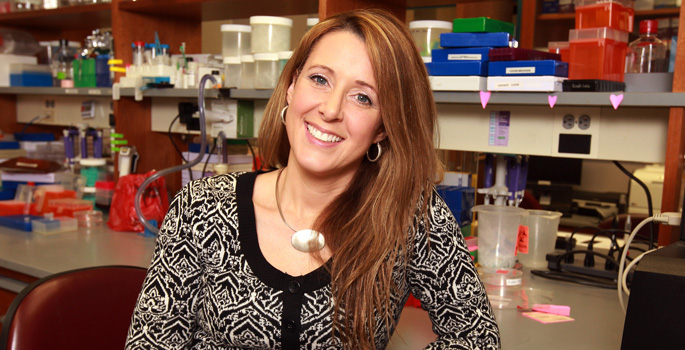
Studies shed new light on breast cancer development
Rebecca Cook, Ph.D., assistant professor of Cancer Biology, has spent her life trying to understand what makes things grow, from seedlings in soil to tumor cells in the body. Read MoreFeb 20, 2014
-
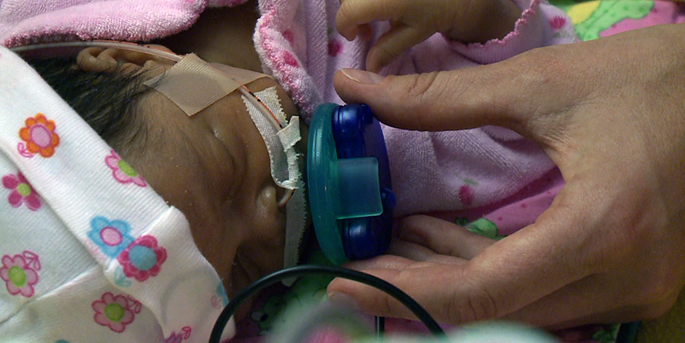
Vanderbilt study shows mother’s voice improves hospitalization and feeding in preemies
Premature babies who receive an interventional therapy combining their mother’s voice and a pacifier-activated music player learn to eat more efficiently and have their feeding tubes removed sooner than other preemies, according to a Monroe Carell Jr. Children’s Hospital at Vanderbilt study published today in… Read MoreFeb 17, 2014
-

Major grant creates clinical research network
Vanderbilt University Medical Center has received an 18-month, $6.9 million award to set up a Clinical Data Research Network (CDRN) that can reach millions of patients and speed the translation of research findings into clinical practice. Read MoreFeb 13, 2014
-

VUMC’s Ho honored with presidential research award
Vanderbilt University Medical Center’s Richard Ho, M.D., MSCI, has received a presidential honor for his innovative studies of mechanisms by which drug transporter proteins mediate the absorption, distribution and elimination of chemotherapeutic agents. Read MoreFeb 13, 2014
-

Ozier to direct human research protection efforts
Julie Ozier, MHL, has been named director of Vanderbilt’s Human Research Protection Program (HRPP) and Institutional Review Board (IRB). Ozier has worked with the HRPP and IRB for 11 years, has been associate director since 2007, and at Vanderbilt since 1996. Read MoreFeb 13, 2014
-

Obesity sends immune cells to the brain
Obesity causes peripheral immune cells to move to the brain, where they may contribute to inflammation and the pathophysiology of obesity. Read MoreFeb 12, 2014
-
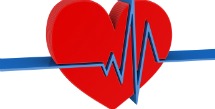
Keeping the beat after heart surgery
Variation in the gene for the beta-1 adrenergic receptor increases the risk that a patient will have an abnormal heart rhythm after cardiac surgery. Read MoreFeb 10, 2014
-
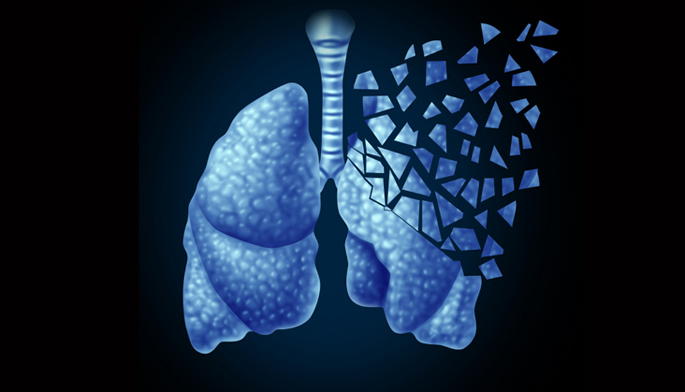
New direction for treating lung cancer
Targeting the production of molecules that promote tumor blood vessel development offers a new path for treating lung cancer. Read MoreFeb 7, 2014
-
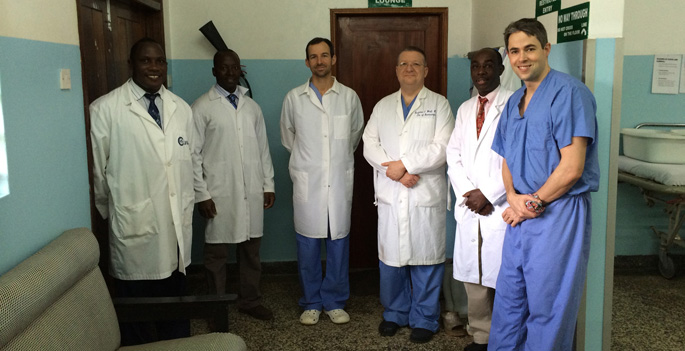
Hydrocephalus treatment study began in Uganda
Rob Naftel, M.D., traveled more than 8,000 miles to learn a new surgical technique to treat hydrocephalus, the buildup of cerebrospinal fluid in the brain. Read MoreFeb 6, 2014
-

Antioxidants promising for rare disorder
The antioxidant vitamin E prevented the buildup of toxic products in a model of a rare genetic disorder, suggesting new strategies for therapeutic development. Read MoreFeb 6, 2014
-

Discovery may pave way for RSV vaccine
Vanderbilt University scientists have contributed to a major finding, reported this week in the journal Nature, which could lead to the first effective vaccine against respiratory syncytial virus (RSV), a significant cause of infant mortality. Read MoreFeb 5, 2014
-

Study examines routine screening for health literacy
Research conducted at Vanderbilt University Medical Center shows that routine administration of the Brief Health Literacy Screen (BHLS) by nurses provides a valid measure for large-scale studies of the influence of health literacy on clinical outcomes. Read MoreJan 30, 2014
-

Study tracks pet therapy’s impact on young patients
A Vanderbilt study is investigating whether therapy dogs can have a positive effect on children undergoing chemotherapy. Read MoreJan 30, 2014
-

Overuse injuries among young athletes examined
With concerns mounting as children train harder, compete more frequently and specialize in a single sport earlier, the American Medical Society for Sports Medicine has released a position statement that provides guidance to health providers who care for young athletes. Read MoreJan 30, 2014
-

Is healthy obesity possible?
It might be possible to generate a “metabolically healthy” state of obesity by targeting signaling pathways that improve insulin sensitivity. Read MoreJan 29, 2014
-

Math models to aid voice disorders
A new computational model of the interactions between vocal folds and the air around them could aid in designing new treatments for voice disorders. Read MoreJan 27, 2014
-
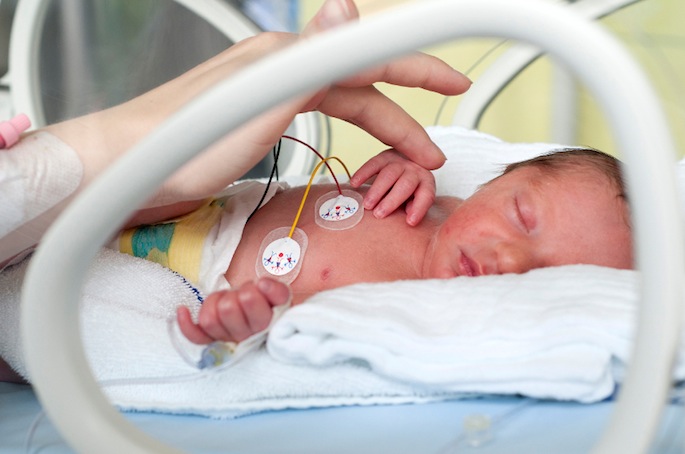
Probing mysteries of preterm birth
Understanding the relationship between the thinning and rupture of fetal membranes and the presence of bacteria could lead to treatment and prevention strategies for premature birth. Read MoreJan 24, 2014
-

Autism Speaks grant boosts Rett syndrome research
Colleen Niswender, Ph.D., research associate professor of Pharmacology, has received a three-year, $450,000 grant from the autism science and advocacy organization Autism Speaks to support studies investigating a possible new treatment for Rett syndrome. Read MoreJan 23, 2014
-
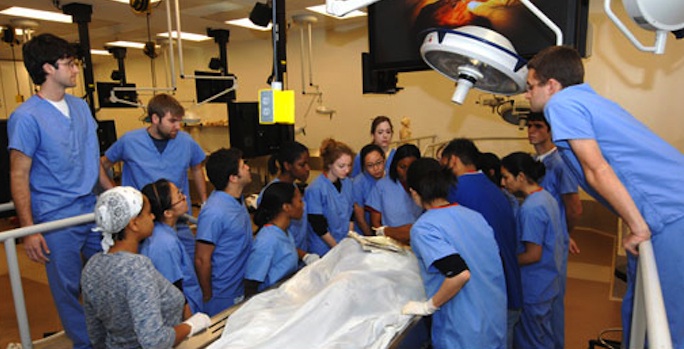
VUSM moves into top 10 in NIH funding
According to annual figures available through the National Institutes of Health (NIH), Vanderbilt University School of Medicine (VUSM) is now ranked ninth in the nation among U.S. medical schools in total grant support provided through the nation’s medical research agency. Read MoreJan 23, 2014
-

Human and Helicobacter co-evolution
by Denise Anthony (iStock) A Vanderbilt University-led research team has solved a long-standing riddle: Why do people of mostly Amerindian ancestry in the Andes have a gastric cancer rate that is 25 times higher than that of fellow Colombians of mostly African descent only 124 miles away on the coast?… Read MoreJan 23, 2014